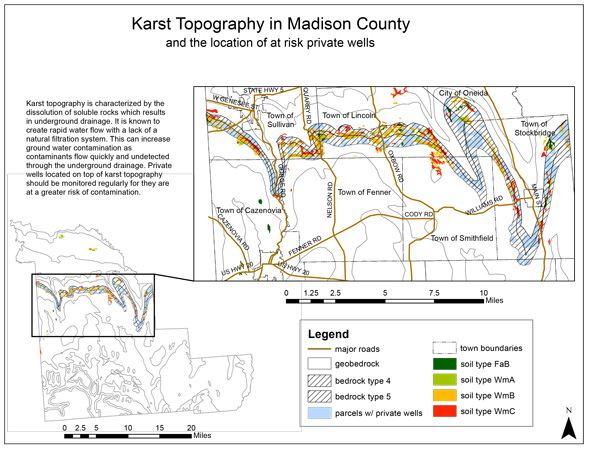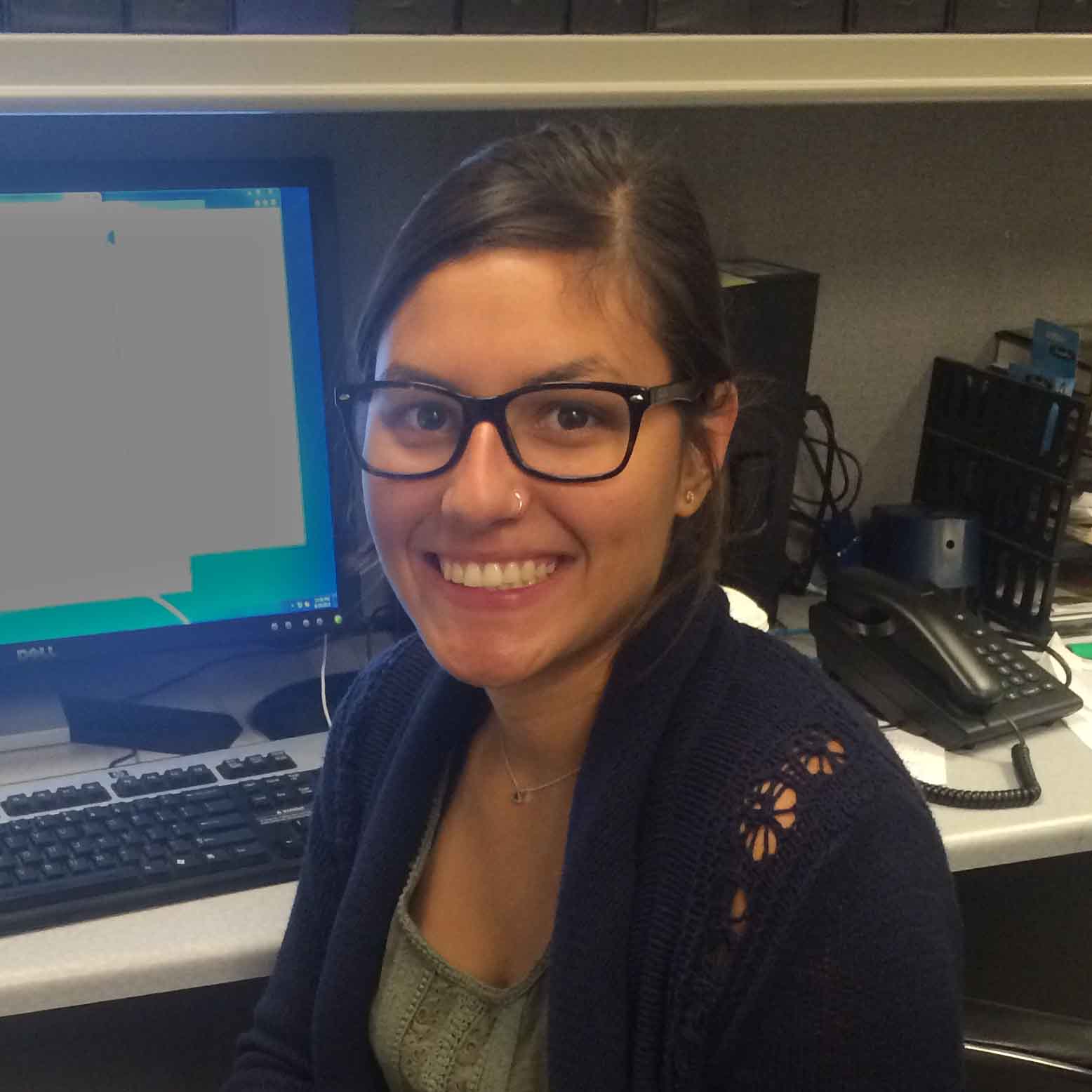
One of several GIS maps created by Kayleigh Bhangdia ’16 during her summer internship with the Madison County Department of Health.
Thanks in part to research conducted by a and student, Madison County will receive more than a half-million dollars in federal funding for well-water testing and remediation to take place during the next five years.
Kayleigh Bhangdia ’16, of Poughquag, N.Y., worked with the Madison County Department of Health this summer, via , to examine where private drinking wells may be threatened by known contaminated sites, spills, agricultural runoff, and bulk storage locations.
Bhangdia used her knowledge of , learned in a ˛Řľ«¸ó course, to examine U.S. Department of Environmental Conservation statistics about spill sites and dangerous ground-water issues. She then overlayed that information onto a map of Madison County’s private well locations, which nearly half of the local population relies on for drinking water.

Kayleigh Bhangdia ’16
“There could be huge distributions of contaminants and no one would know, given the lack of regulation,” Bhangdia said.
Geoffrey Snyder, Madison County environmental health director, said Bhangdia’s analysis also helped to point out locations of potential well and aquifer contamination related to geological conditions like karst (see definition above).
Madison County was one of just 20 recipients of grant funding nationwide from the U.S. Centers for Disease Control.
Snyder said the grant will pay for a full-time water resource position and for more than $28,000 per year in water quality tests of residential wells, and the creation a project committee to improve the county’s capacity to respond to water contamination incidents.
Bhangdia is not the first ˛Řľ«¸ó student to work with the county through the Upstate Institute. Olivia Gamble ’15 of Westfield, Mass., studied data related to expectant mothers, breastfeeding rates, and lead in the home.
“The professional qualities exhibited by these ˛Řľ«¸ó students, and the high level of GIS skills they bring to our health department, will continue to make these collaborative opportunities of great value to this office, and the students a pleasure to work with,” Snyder said.
“Kayleigh and Olivia have developed strong skills at ˛Řľ«¸ó that will serve them well as they pursue careers in public health after they graduate,” said Julie Dudrick, Upstate Institute project director. “They benefit from having the opportunity to further develop those skills in a community-based setting, and their work benefits our community at the same time.”
Bhangdia said the work was right in line with her future career goals.
“Before taking my first geography class at ˛Řľ«¸ó, I always assumed I wanted to pursue medical school after graduation. But after exploring various geography and environmental studies classes I realized my passions aligned more with public health and environmentalism,” Bhangdia said. “Working at the health department was an extremely rewarding experience. I really felt like part of this community.”
Related Links
